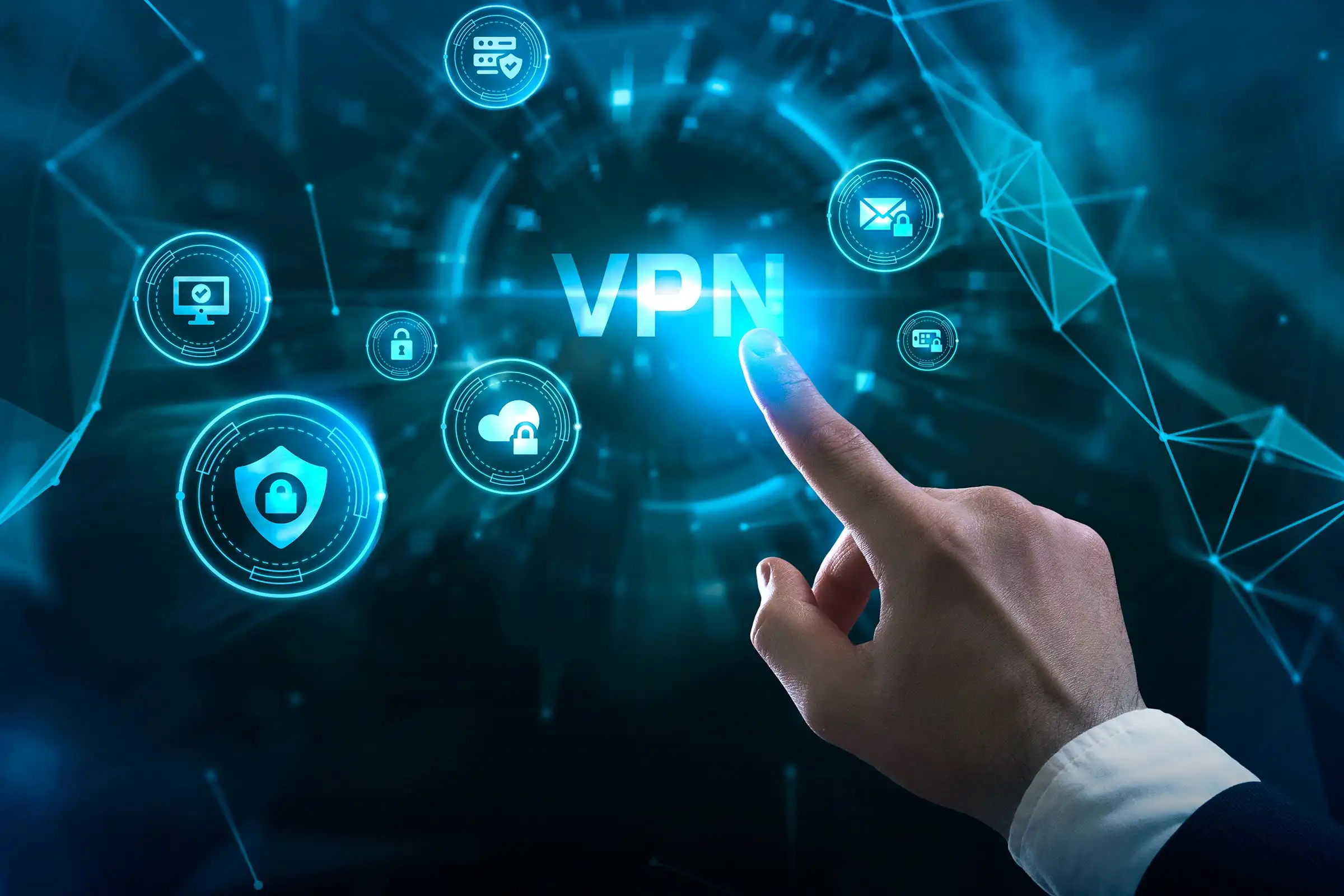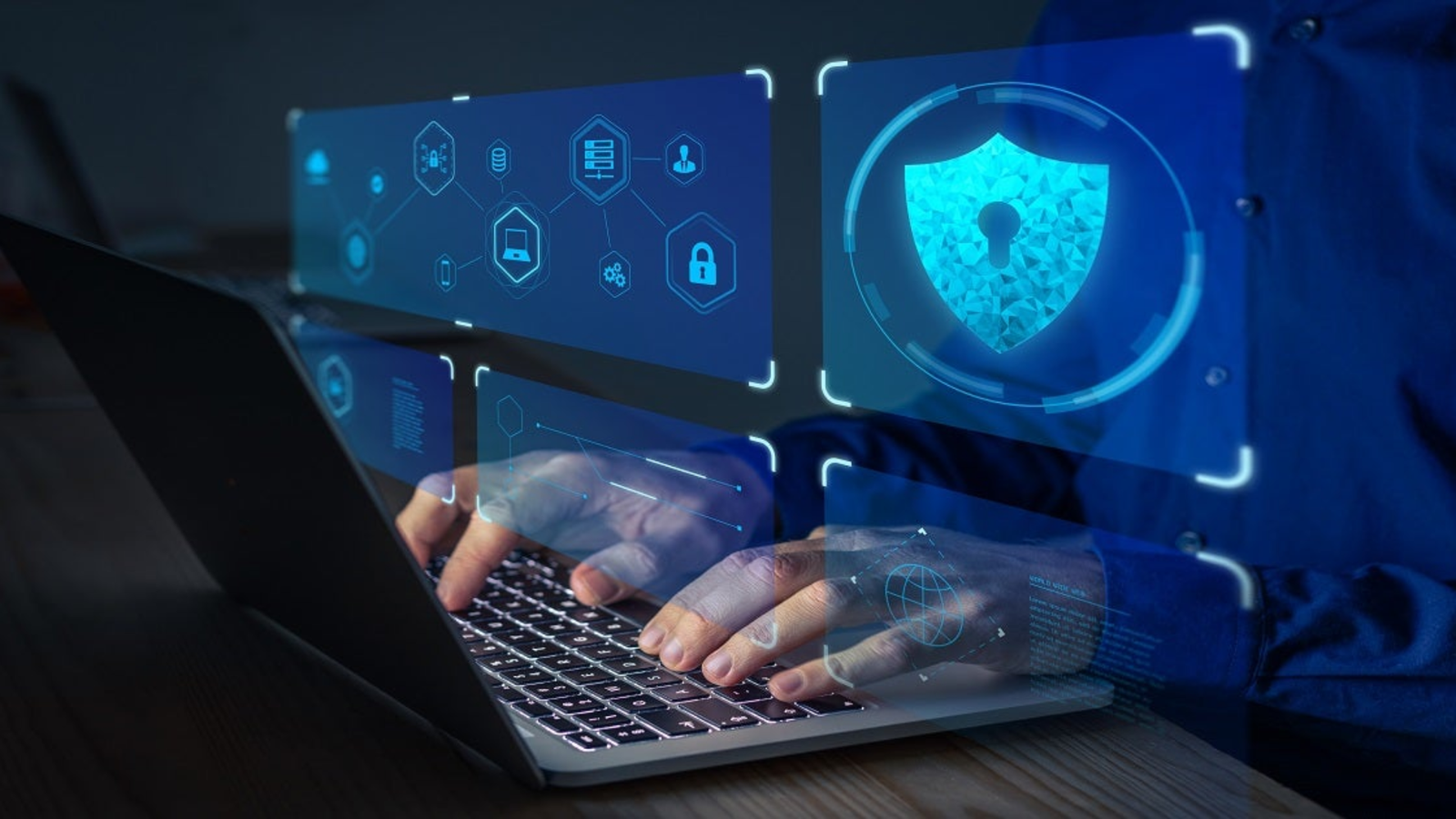What Is VPN in Simple Words? How It Works & Why You Need It
Kenoxis | 12 Dec 2025

A Virtual Private Network (VPN) is a tool that encrypts your connection In simple words, a VPN (Virtual Private Network) is a secure, private connection that protects your online activities by hiding your IP address and encrypting your internet traffic. Many people have a habit of looking for “What is VPN in simple words” since they need an uncomplicated explanation free from technical jargon — and that’s precisely what this guide does.
If you are using a computer, laptop, or Android phone, knowing how a VPN works can help keep you safe online.
How Does a VPN Work? (Simple Explanation)
A VPN functions by forming a private, secured tunnel made of encryption between your device and the internet. Usually, in the case of browsing through the internet:
- Your Internet Service Provider (ISP) can be kept informed of what you are up to.
- Your IP could be traced by the sites you visit.
- People with malicious intents using the same public Wi-Fi can get a hold of your data.
The situation is completely transformed by a VPN. A good VPN service protects your online identity
How a VPN Works (Step-by-Step):
- You activate the VPN on your device.
- Your device makes a secure connection to a remote VPN server.
- The VPN makes all your internet traffic secure through encryption.
- Your original IP address gets concealed and a server’s IP takes its place.
- Websites are misled into thinking that your location is that of the VPN server, not yours.
- Your online activities get their privacy and protection.
This is the most important part:
- A VPN hides your identity
- Encrypts your data
- Protects you on any network
- Gives you online anonymity
What Is VPN and Why Do I Need It? (The Real Reasons)
Many people believe VPNs are just for tech experts, but in reality, they are essential for everyone today.
Here are the main reasons why you need a VPN:
1. To Keep Your Online Privacy Secured
The websites you visit, apps you use and your internet service provider are all spying on you.
A VPN ensures that no one can see your online activities.
2. To Protect Your Data on Public Wi-Fi
Cafés, airports, hotels or malls offering free Wi-Fi are all places where your data can be easily accessed by hackers.
On the other hand, a VPN makes it impossible for anybody to get in through encryption.
3. To Conceal Your Real IP Address
Your IP address tells a lot about you:
- Your location
- Your ISP
- Your web browsing
None of these will be seen by a VPN.
4. To Unblock Content Restricted by Region
Countries have different licensing for websites, apps, and streaming platforms, thus limiting their access to that particular country.
However, a VPN makes it easy and safe for you to bypass them.
5. To Avoid Being Tracked
Your behavior is monitored by everywhere: advertisers, apps, social media platforms, and trackers.
A VPN does not stop all tracking, but it lowers it a lot.
6. To Protect Remote Work
If you are working remotely or accessing the company’s data, then a VPN is a must for secure access.
How VPN Works (Technical but Simple)
When you turn on a VPN, your data travels through a secure VPN connection to a remote server operated by the VPN provider. A VPN encrypts your internet traffic using an encryption key, making the data unreadable to hackers.
Let’s summarize the technical part in the simplest way:
1. Encryption
Your data is converted into an unrecognizable code by the VPN.
In case an unauthorized person manages to intercept the data, he still could not decipher it.
2. Tunneling
Data moves through a private “tunnel” which no outsiders can enter.
3. IP Masking
You are assigned a fresh IP address by the VPN server.
Your original IP address is kept hidden.
4. Routing Through VPN Server
The flow of your internet traffic is:
Device → VPN Tunnel → VPN Server → Website
And the website is only aware of the server, not you.
5. Secure Protocols
VPNs employ protocols like OpenVPN, IKEv2, WireGuard, etc.
These are what make the connection both fast and secure.
VPN Server Explained (Easy Guide) and How It Works?
A VPN server is the distant machine through which your encoded traffic will be.
What the VPN server does:
- Assigns you a new IP
- Hides your actual location
- Forwards your encrypted traffic to websites
- Brings back the response through the tunnel
Think of the VPN server as:
- Your shield
- Your identity changer
- Your encryption handler
- Your secure gateway to the internet
The stronger the VPN server infrastructure, the better your privacy and connection speed.
VPN for Android: Simple Guide (Simple & Practical Guide)
The majority of people look for “what is VPN in Android phone” simply because mobile privacy is a big issue these days.
Your mobile device is in a constant state of connection to:
- Public Wi-Fi
- Mobile data
- Applications
- Trackers
- Social media
- Web browsing
Each connection reveals your location, IP address, and behavior.
How VPN Works on Android
- Using a VPN on an Android phone:
- Establishes a secured tunnel
- All app and web data are encrypted
- Your IP address is hidden
- You are safeguarded against malicious network.
- Your online activities are not visible to advertisers
The use of VPN is possible on:
- Wi-Fi
- Mobile Data
- Hotspot
- Apps and Browsers
Why Android Users Need a VPN
- Android apps are always monitoring your activity
- Public Wi-Fi is not safe to use
- Most mobile websites are not encrypted
- Hackers are more interested in smartphones than in PCs
- VPN grants access to online banking, UPI, OTT apps, and social media browsing
VPN on Android is important for mobile safety and privacy.
VPN on PC or Laptop: Why You Need It (Windows/Mac)
A computer VPN does the same as a mobile VPN — but it is more secure.
Why VPN on PC or Laptop?
- Computers keep a lot of private data
- Higher activities of browsing, streaming, downloading
- Office or business activities need security and privacy
- Cybercriminals often target PC networks
How VPN Works on Computer
- Once the VPN is activated on Windows/Mac/Linux:
- All your internet traffic is transmitted via an encrypted VPN tunnel
- Every browser, application, and software are protected
- Your real IP is hidden
- Your digital identity is kept confidential
Benefits of VPN on Computer
VPNs are widely used by remote workers to securely access company files through a remote access VPN.
- Shielding by VPN while online transactions
- Confidential and safe downloading plus browsing
- Unhindered access to company networks with safety
Security at the device level for the whole
- Advantages of Using a VPN Daily
- Enhanced online privacy
- Public Wi-Fi protection
- Secure file transfers
- ISP tracking-free
- Ads & trackers blocked (if supported by VPN)
- Shopping or banking protection
- Data visibility restricted to hackers
- Remote work security assistance
A VPN is not a luxury but a necessity.
Conclusion: Why You Should Use a VPN Today
In simple terms:
A VPN helps protect your online identity, keeps your data private, and secures your connection. It works whether you're on a computer, laptop, or Android phone.
It conceals your IP address, encrypts your data, and allows you to browse the internet safely and anonymously. A VPN protects your entire internet connection, not just browser traffic. Some VPN protocols are open-source, allowing experts to inspect the code for security. These protocols help create secure virtual networks.
As online threats, data tracking, and hacking become more common, a VPN stands out as one of the most critical tools for cybersecurity today.


.png)


.png)

.png)

.png)